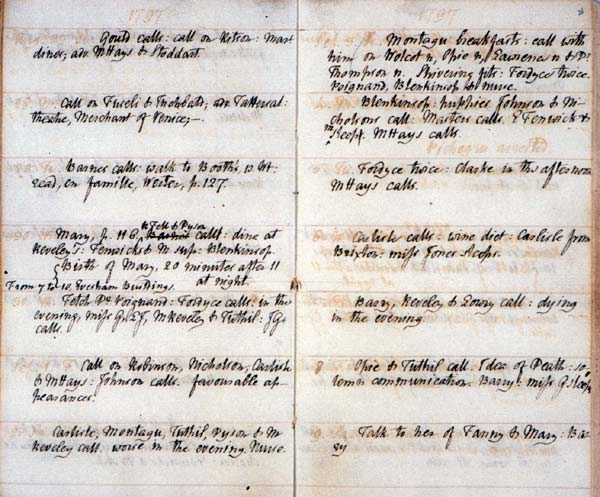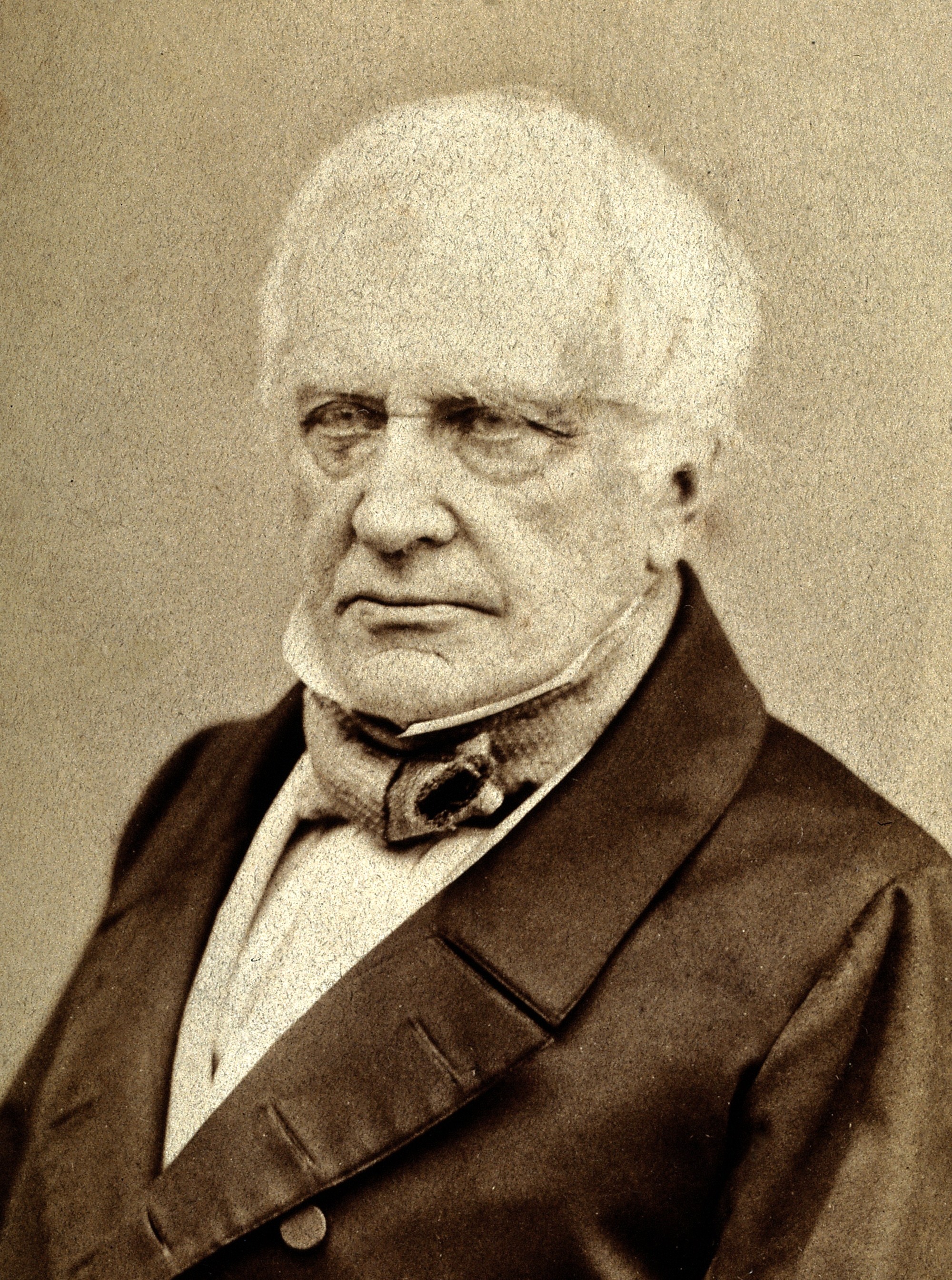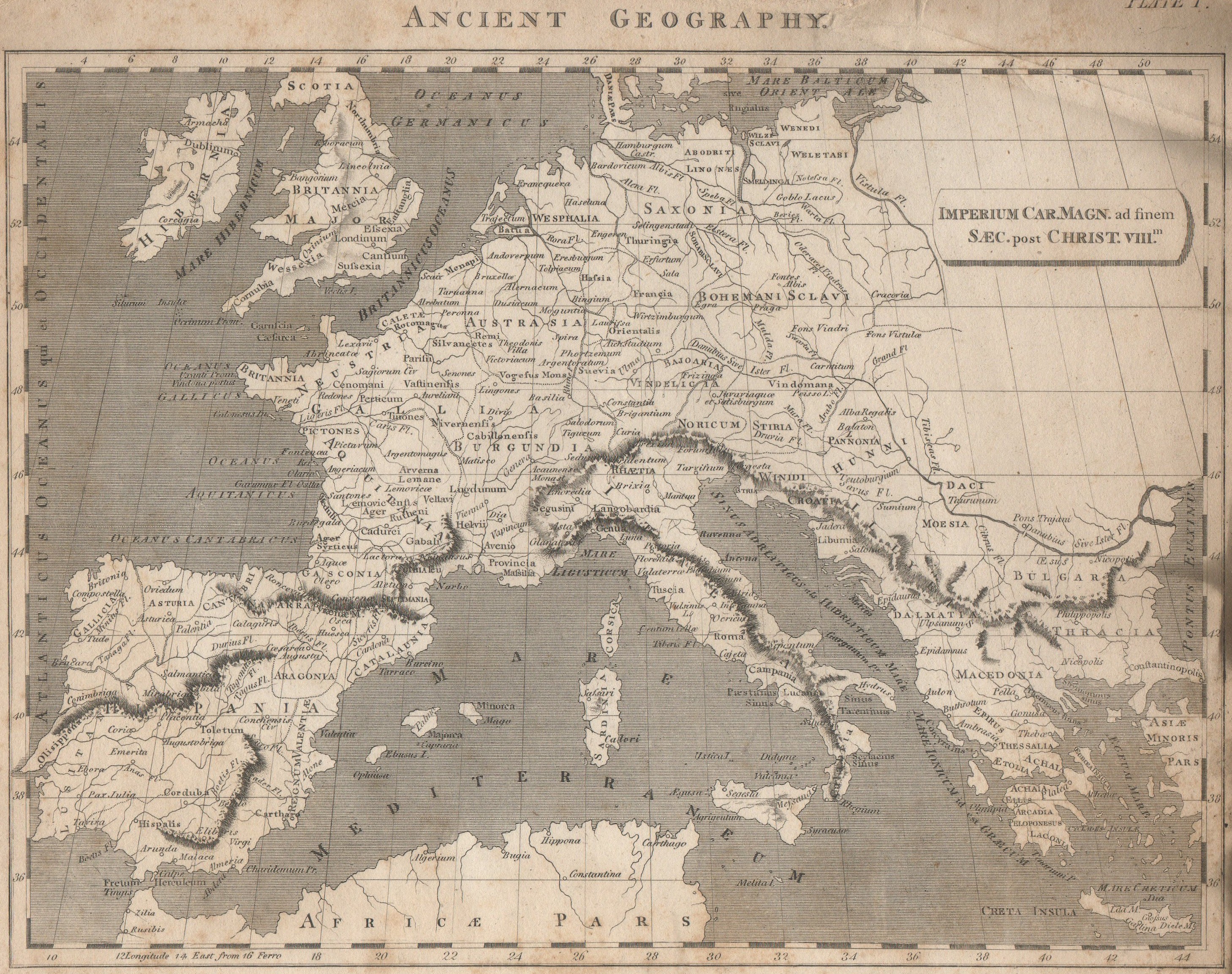|
John Abernethy (surgeon)
John Abernethy FRS (3 April 1764 – 20 April 1831) was an English surgeon. He is popularly remembered today for having given his name to the Abernethy biscuit, a coarse-meal baked good meant to aid digestion. Life He was a grandson of John Abernethy. He was born in Coleman Street in the City of London on 3 April 1764, where his father was a merchant. Educated at Wolverhampton Grammar School, he was apprenticed in 1779 to Sir Charles Blicke (1745–1815), a surgeon at St Bartholomew's Hospital, London. He attended the anatomical lectures of Sir William Blizard (1743–1835) at the London Hospital, and was employed to assist as ''demonstrator''; he also attended Percivall Pott's surgical lectures at St Bartholomew's Hospital, as well as the lectures of John Hunter. On Pott's resignation of the office of surgeon of St Bartholomew's, Sir Charles Blicke, who was assistant-surgeon, succeeded him, and Abernethy was elected assistant-surgeon in 1787. In this capacity he ... [...More Info...] [...Related Items...] OR: [Wikipedia] [Google] [Baidu] |
Coleman Street
Coleman Street is one of the 25 ancient wards of the City of London and lies on the City's northern boundary with the London Borough of Islington. The ward, which includes land lying on either side of the former city wall, takes its name from a road linking Gresham Street with the London Wall road. The ward Modern ward boundary changes, particularly those of 2003, have much altered the extent of city wards, so that many no longer closely correlate to their historic areas. Coleman Street is a very busy ward, it has its own long established ward club and newsletter. Etymology The ward takes its name from Coleman Street, which took its name from the charcoal burners who occupied the area in medieval times. Historic Ward The first mention of the Ward appears to have been in 1130, but at that time it was common practice to use the name of the ward Alderman to refer to the ward. In the 1130 survey, Coleman Street Ward is thought to correspond to ''Warda Haconis''. The Ward con ... [...More Info...] [...Related Items...] OR: [Wikipedia] [Google] [Baidu] |
Aneurysm
An aneurysm is an outward bulging, likened to a bubble or balloon, caused by a localized, abnormal, weak spot on a blood vessel wall. Aneurysms may be a result of a hereditary condition or an acquired disease. Aneurysms can also be a nidus (starting point) for clot formation ( thrombosis) and embolization. As an aneurysm increases in size, the risk of rupture, which leads to uncontrolled bleeding, increases. Although they may occur in any blood vessel, particularly lethal examples include aneurysms of the Circle of Willis in the brain, aortic aneurysms affecting the thoracic aorta, and abdominal aortic aneurysms. Aneurysms can arise in the heart itself following a heart attack, including both ventricular and atrial septal aneurysms. There are congenital atrial septal aneurysms, a rare heart defect. Etymology The word is from Greek: ἀνεύρυσμα, aneurysma, "dilation", from ἀνευρύνειν, aneurynein, "to dilate". Classification Aneurysms are classified b ... [...More Info...] [...Related Items...] OR: [Wikipedia] [Google] [Baidu] |
The Times Literary Supplement
''The Times Literary Supplement'' (''TLS'') is a weekly literary review published in London by News UK, a subsidiary of News Corp. History The ''TLS'' first appeared in 1902 as a supplement to ''The Times'' but became a separate publication in 1914. Many distinguished writers have contributed, including T. S. Eliot, Henry James and Virginia Woolf. Reviews were normally anonymous until 1974, when signed reviews were gradually introduced during the editorship of John Gross. This aroused great controversy. "Anonymity had once been appropriate when it was a general rule at other publications, but it had ceased to be so", Gross said. "In addition I personally felt that reviewers ought to take responsibility for their opinions." Martin Amis was a member of the editorial staff early in his career. Philip Larkin's poem "Aubade", his final poetic work, was first published in the Christmas-week issue of the ''TLS'' in 1977. While it has long been regarded as one of the world's pre ... [...More Info...] [...Related Items...] OR: [Wikipedia] [Google] [Baidu] |
Frankenstein
''Frankenstein; or, The Modern Prometheus'' is an 1818 novel written by English author Mary Shelley. ''Frankenstein'' tells the story of Victor Frankenstein, a young scientist who creates a sapient creature in an unorthodox scientific experiment. Shelley started writing the story when she was 18, and the first edition was published anonymously in London on 1 January 1818, when she was 20. Her name first appeared in the second edition, which was published in Paris in 1821. Shelley travelled through Europe in 1815, moving along the river Rhine in Germany, and stopping in Gernsheim, away from Frankenstein Castle, where, two centuries before, an alchemist had engaged in experiments.This seems to mean Johann Konrad Dippel (1673–1734), one century before (not two). For Dippel's experiments and the possibility of connection to ''Frankenstein'' see the Dippel article. She then journeyed to the region of Geneva, Switzerland, where much of the story takes place. Galvanis ... [...More Info...] [...Related Items...] OR: [Wikipedia] [Google] [Baidu] |
Mary Shelley
Mary Wollstonecraft Shelley (; ; 30 August 1797 – 1 February 1851) was an English novelist who wrote the Gothic novel '' Frankenstein; or, The Modern Prometheus'' (1818), which is considered an early example of science fiction. She also edited and promoted the works of her husband, the Romantic poet and philosopher Percy Bysshe Shelley. Her father was the political philosopher William Godwin and her mother was the philosopher and women's rights advocate Mary Wollstonecraft. Mary's mother died less than a fortnight after giving birth to her. She was raised by her father, who provided her with a rich if informal education, encouraging her to adhere to his own anarchist political theories. When she was four, her father married a neighbour, Mary Jane Clairmont, with whom Mary came to have a troubled relationship. In 1814, Mary began a romance with one of her father's political followers, Percy Bysshe Shelley, who was already married. Together with her stepsister, Claire C ... [...More Info...] [...Related Items...] OR: [Wikipedia] [Google] [Baidu] |
Marilyn Butler
Marilyn Speers Butler, Lady Butler, FRSA, FRSL, FBA (''née'' Evans; 11 February 1937 – 11 March 2014) was a British literary critic. She was King Edward VII Professor of English Literature at the University of Cambridge from 1986 to 1993, and Rector of Exeter College, Oxford, from 1993 to 2004. She was the first female head of a formerly all male Oxford or Cambridge college. She won the British Academy's Rose Mary Crawshay Prize in 1973. Biography Marilyn Speers Evans was born in Coombe, Kingston upon Thames on 11 February 1937. Her father, Sir Trevor Maldwyn Evans was a journalist and her mother was Margaret Speers "Madge" Evans (née Gribbin). At the age of two, she was evacuated with her mother and elder brother to New Quay in Wales, where she remained until the end of World War II. She was educated at Wimbledon High School and St Hilda's College, Oxford, [...More Info...] [...Related Items...] OR: [Wikipedia] [Google] [Baidu] |
Sir William Lawrence
Sir William Lawrence, 1st Baronet (16 July 1783 – 5 July 1867) was an English surgeon who became President of the Royal College of Surgeons of London and Serjeant Surgeon to the Queen. In his mid-thirties, he published two books of his lectures which contained pre-Darwinian ideas on man's nature and, effectively, on evolution. He was forced to withdraw the second (1819) book after fierce criticism; the Lord Chancellor ruled it blasphemous. Lawrence's transition to respectability occurred gradually, and his surgical career was highly successful. In 1822, Lawrence was elected a member of the American Philosophical Society in Philadelphia. Lawrence had a long and successful career as a surgeon. He reached the top of his profession, and just before his death the Queen rewarded him with a baronetcy (see Lawrence baronets) shortly before his death in 1867. Early life and education Lawrence was born in Cirencester, Gloucestershire, the son of William Lawrence, the town's chief ... [...More Info...] [...Related Items...] OR: [Wikipedia] [Google] [Baidu] |
The Purloined Letter
"The Purloined Letter" is a short story by American author Edgar Allan Poe. It is the third of his three detective stories featuring the fictional C. Auguste Dupin, the other two being "The Murders in the Rue Morgue" and " The Mystery of Marie Rogêt". These stories are considered to be important early forerunners of the modern detective story. It first appeared in the literary annual ''The Gift for 1845'' (1844) and soon was reprinted in numerous journals and newspapers. Plot summary The unnamed narrator is with the famous Parisian amateur detective C. Auguste Dupin when they are joined by G-, prefect of the Paris police. The prefect has a case he would like to discuss with Dupin. A letter from the queen's lover has been stolen from her boudoir by the unscrupulous Minister D—. D— had been in the room, saw the letter, and switched it for a letter of no importance. He has since been blackmailing the queen. The prefect makes two deductions with which Dupin does not disagree: # ... [...More Info...] [...Related Items...] OR: [Wikipedia] [Google] [Baidu] |
Edgar Allan Poe
Edgar Allan Poe (; Edgar Poe; January 19, 1809 – October 7, 1849) was an American writer, poet, editor, and literary critic. Poe is best known for his poetry and short stories, particularly his tales of mystery and the macabre. He is widely regarded as a central figure of Romanticism in the United States, and of American literature. Poe was one of the country's earliest practitioners of the short story, and considered to be the inventor of the detective fiction genre, as well as a significant contributor to the emerging genre of science fiction. Poe is the first well-known American writer to earn a living through writing alone, resulting in a financially difficult life and career. Poe was born in Boston, the second child of actors David and Elizabeth "Eliza" Poe. His father abandoned the family in 1810, and when his mother died the following year, Poe was taken in by John and Frances Allan of Richmond, Virginia. They never formally adopted him, but he was with the ... [...More Info...] [...Related Items...] OR: [Wikipedia] [Google] [Baidu] |
George Macilwain
George may refer to: People * George (given name) * George (surname) * George (singer), American-Canadian singer George Nozuka, known by the mononym George * George Washington, First President of the United States * George W. Bush, 43rd President of the United States * George H. W. Bush, 41st President of the United States * George V, King of Great Britain, Ireland, the British Dominions and Emperor of India from 1910-1936 * George VI, King of Great Britain, Ireland, the British Dominions and Emperor of India from 1936-1952 * Prince George of Wales * George Papagheorghe also known as Jorge / GEØRGE * George, stage name of Giorgio Moroder * George Harrison, an English musician and singer-songwriter Places South Africa * George, Western Cape ** George Airport United States * George, Iowa * George, Missouri * George, Washington * George County, Mississippi * George Air Force Base, a former U.S. Air Force base located in California Characters * George (Peppa Pig), a 2-year-old ... [...More Info...] [...Related Items...] OR: [Wikipedia] [Google] [Baidu] |
Rees's Cyclopædia
Rees's ''Cyclopædia'', in full ''The Cyclopædia; or, Universal Dictionary of Arts, Sciences, and Literature'' was an important 19th-century British encyclopaedia edited by Rev. Abraham Rees (1743–1825), a Presbyterian minister and scholar who had edited previous editions of '' Chambers's Cyclopædia''. Background When Rees was planning his ''Cyclopædia'', Europe was in the aftermath of the French Revolution, and during serialised publication (1802–1820) the Napoleonic Wars and War of 1812 occurred. Britain absorbed into its empire a number of the former French and Dutch colonies around the world; Romanticism came to the fore; evangelical Christianity flourished with the efforts of William Wilberforce; and factory manufacture burgeoned. With this background, philosophical radicalism was suspect in Britain, and aspects of the ''Cyclopædia'' were thought to be distinctly subversive and attracted the hostility of the Loyalist press. Contributors Jeremiah Joyce and Charl ... [...More Info...] [...Related Items...] OR: [Wikipedia] [Google] [Baidu] |
Digestive Biscuit
A digestive biscuit, sometimes described as a sweet-meal biscuit, is a semi- sweet biscuit that originated in Scotland. The digestive was first developed in 1839 by two Scottish doctors to aid digestion. The term ''digestive'' is derived from the belief that they had antacid properties due to the use of sodium bicarbonate when they were first developed. Historically, some producers used diastatic malt extract to "digest" some of the starch that existed in flour prior to baking. First manufactured by McVitie's in 1892 with a secret recipe developed by Sir Alexander Grant, their digestive is the best-selling biscuit in the UK. In 2009, the digestive was ranked the fourth most popular biscuit for " dunking" into tea among the British public, with the chocolate digestive (produced by McVitie's in 1925) coming in at number one. The chocolate variant from McVitie's is routinely ranked the UK's favourite snack. History In 1839, digestives were developed in the United Kingdom by ... [...More Info...] [...Related Items...] OR: [Wikipedia] [Google] [Baidu] |
.jpg)

_Irish_Frankenstein_(cropped).jpg)




